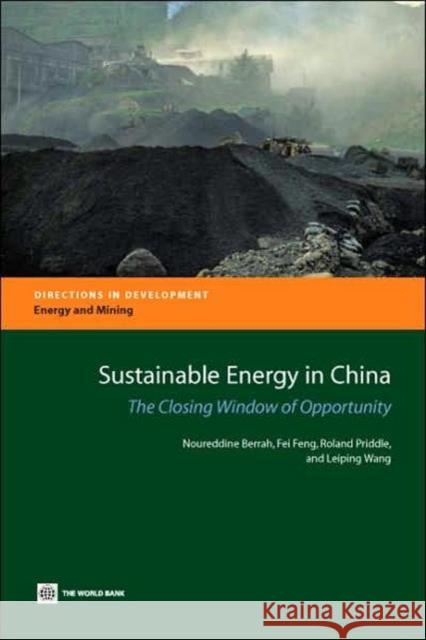Sustainable Energy in China: The Closing Window of Opportunity » książka
Sustainable Energy in China: The Closing Window of Opportunity
ISBN-13: 9780821367537 / Angielski / Miękka / 2007
China's remarkable economic growth has been supported by a generally adequate and relatively low-cost supply of energy, creating the world's largest coal industry, its second-largest oil market, and an electic power business that is adding capacity at an unprecedented rate. However, in fueling that impressive economic growth, the energy sector has increasingly stressed the natural environment, placed heavy demands on domestic energy sources, and exposed the country to risks of dependence on foreign petroleum supplies. If energy requirements continue to double every decade, China will not be able to meet the energy demands of the present without seriously compromising the ability of future generations to meet their own energy needs. This title uses historical data from 1980 and alternative scenarios through 2020 to assess China's future energy requirements and the resources to meet them. It calls for a high-level commitment to develop and implement an integrated, coordinated, and comprehensive energy policy. The authors recommend eight building blocks to reduce energy consumption growth well below the targeted rate of economic growth, to use national resources on an economically and environmentally sound basis, and to establish a robust energy system that can better ensure the security of a diverse supply of competitively priced energy forms. Sustainability calls for persistence of effort, greater reliance on advanced energy technologies, and better standards enforcement. Achieving these goals will require policy initiatives that restrict demand and create a 'resources-conscious society', reconcile energy needs with environmental imperatives, rationalize pricing, and tackle supply security. While the challenges are daunting, China has a unique opportunity to position itself as a world leader in the application of cutting-edge energy developments to create a sustainable energy sector effectively supporting a flourishing economy and society.











